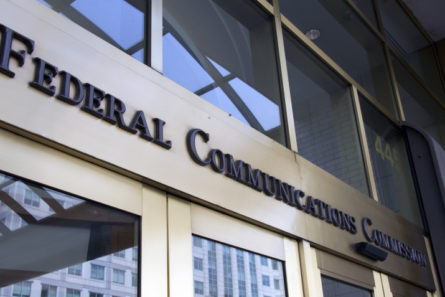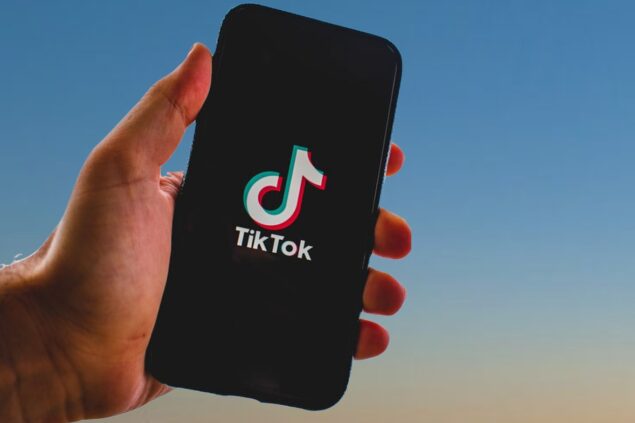The FCC Should Not Engage in Section 230 Rulemaking
Jennifer Huddleston

This post is part of the “Governing the Internet” blog series, which features a range of viewpoints on topics involving internet regulation.
The series is co-sponsored by the Regulatory Transparency Project and the Federalist Society’s Practice Groups.
Section 230 of the Communications Decency Act, a law that provides liability protection for user-generated content and helps enable a wide range of content moderation decisions, has been criticized by policymakers and advocates on both the left and the right. Not only have there been numerous proposals for legislative changes, but the National Telecommunications and Information Administration (NTIA), following an executive order from President Trump, sent a petition to the Federal Communications Commission (FCC) for changes to critical aspects of Section 230. This petition asserts that online platforms are engaging in selective censorship and the use of Section 230 should be more carefully narrowed. The petition requests that the FCC engage in rulemaking regarding various elements of Section 230, including a narrow interpretation of otherwise objectionable content and clarifying how the liability protection applies to “editorial decisions” around content moderation decisions such as what to publish or remove.
Recently, Rachel Bovard argued in this series in favor of the FCC engaging in such rulemaking around Section 230, stating, “that such actions are necessary is quickly becoming inarguable,” and “clarifying the vagaries and inconsistencies of Section 230 in its meaning and application would not be inconsistent with the FCC’s light touch philosophy regarding online issues.”
I would counter that, regardless of how one feels about the current content moderation decisions by online platforms, an FCC decision to engage in changing Section 230 would not only be concerning for First Amendment principles, as Adam Thierer and Neil Chilson discussed in the first piece in this series, but also should raise concerns about the expansion of the administrative state and the intrusion of government into private actions.
When considering the original intent of Section 230, the guiding principles of limited government, and the potential consequences of such an action, it is inappropriate for the FCC to engage in the rulemaking requested in the petition.
Section 230’s Original Intent and Plain Meaning
Advocates for changing Section 230, such as those supporting the NTIA petition FCC for rulemaking, often suggest that Section 230 has evolved or been interpreted to be far broader than intended and may no longer serve its original purposes. Bovard argues, “The troublesome text of Sec. 230 has created an unintended consequence: a grant to Big Tech companies and other online platforms of extraordinary legal protection from those lawsuits that would challenge their suppressive, discriminatory power over the lawful viewpoints of citizen-users.” While critics may wish to see Section 230 narrowed or revised to include a standard such as viewpoint neutrality, this wish is inconsistent with the statute’s original intent.
The authors of Section 230, former Rep. Chris Cox and now Sen. Ron Wyden, have been vocal in its defense and have explained the original intention of the law. For example, in a recent law review article titled “The Origins and Original Intent of Section 230,” Rep. Cox plainly describes the original intent of Section 230 as well as its history, stating “Section 230 focused on enabling user-created content by providing clear rules of legal liability for website operators that host it. Platforms that are not involved in content creation were to be protected from liability for content created by third-party users. This focus of Section 230 proceeded directly from our appreciation of what was at stake for the future of the internet.” Further on, he debunks that idea that the law was intended only for a then-infant industry that has since grown up and that therefore Section 230 has outlived its intended purposes: “As co-author of the legislation, I can verify that this is an entirely fictitious narrative. Far from wishing to offer protection to an infant industry, our legislative aim was to recognize the sheer implausibility of requiring each website to monitor all of the user-created content that crossed its portal each day.”
Similarly, Sen. Wyden has made clear that the intentions of the law were to allow a wide range of decisions around content for platforms, and that the law was never intended to require viewpoint neutrality. Furthermore, the plain text of the law does not mention any sort of requirement for neutrality nor was that the drafters’ intention. In a 2019 interview, Wyden stated, “You can have a liberal platform; you can have conservative platforms. And the way this is going to come about is not through government but through the marketplace, citizens making choices, people choosing to invest. This is not about neutrality. It’s never been about the republisher.” In short, the authors themselves have made it clear that the law’s text and intentions were to allow user-generated content to flourish and to provide legal certainty around the decisions that platforms face on hosting user-generated content. If only every original interpretation question was so specifically answered by a law’s drafters.
Those trying to read additional restrictions or requirements for neutrality into the existing liability protections are not following the original intent of the law, and their position contravenes the plain text of Section 230. If they desire to change Section 230 to serve other purposes or have additional requirements, an originalist approach would favor the path of legislation passed in accord with the Constitution, not through imaginative reinterpretation, especially when both the intent and meaning have been so clearly stated.
The FCC Lacks Authority Over Section 230
Beyond the fact that the proposed interpretations are opposed to the original intent of Section 230, the FCC does not have the authority to engage in such a reinterpretation or narrowing of Section 230. For the agency to do so would set a dangerous precedent for future executive branch or administrative agency intervention into the private sphere, and risk undermining the agency’s positive and ongoing deregulatory work, such as the Restoring Internet Freedom Order.
Advocates for the NTIA petition argue that the FCC’s authority over information services is sufficient to enable it to conduct the requested rulemaking on Section 230. This view, however, is an overly broad interpretation of this authority that would open the door to future expansions of the regulatory state.
In order for the FCC to have proper authority, there should be a grant of authority made. Despite the NTIA petition’s claim, it is clear that Section 230 was not intended to grant the FCC such authority. At the time of floor debate, Rep. Cox made this clear, stating “This bill will establish as the policy of the United States that we do not wish to have content regulation by the Federal Government of what is on the Internet—that we do not wish to have a ‘Federal Computer Commission’ with an army of bureaucrats regulating the Internet.” In their own comments regarding the NTIA petition, the authors once again stated that authority had not been delegated to the agency writing “Section 230 does not invite agency rulemaking.” To interpret that the FCC has the authority to go against this original intent without a clear delegation of authority, would allow the FCC and other agencies to engage in rulemaking on any number of issues that might fall within its purview without a grant from Congress.
If the FCC engaged in rulemaking regarding Section 230, it would open questions about the agency’s broader role in internet governance and in concerns over speech. This could potentially call into question past FCC decisions to remove Title II classification in the Restoring Internet Freedom Order, especially if such rulemaking concerns the neutrality that many Section 230 critics call for. The result of engaging in such rulemaking would create the potential for further expansion of the FCC’s authority and intervention into both individual speech and the internet more generally.
In short, it could serve as a stepping-stone to transform the FCC into the “Federal Computer Commission” that the drafters of Section 230 desired to avoid and represent a shift to a more regulatory approach to technology and innovation. The result would be the government dictating choices and speech allowed for private actors, raising First Amendment concerns rather than allowing individuals to find the solutions that best fit their needs in the market (and for innovators to create them when they do not currently exist).
The Concerning Consequences of Expanding FCC Authority to Include Section 230
If the FCC does engage in rulemaking on Section 230, the consequences would be an expansion of regulatory authority into both technology and speech. This authority, once granted, would not be easily rescinded. Given the polarized nature of our political climate online off, the results should be concerning particularly for those that value the opportunity to engage in political speech.
Online speech has been hugely beneficial for conservatives and others who had harder access to platforms when faced with the limited opportunities of traditional media. As former Sen. Rick Santorum explained, “social media is central to the President’s and most Republicans’ election strategy, allowing them to bypass the openly hostile mainstream media in order to reach our base and convince potential new voters.” Proposed changes to Section 230 could limit the use of platforms that have given conservative voices more opportunities than ever to directly engage in critical conversations and reach their audience. The same could be true for any number of groups who have been struggled to reach their audience and gain a platform online when facing barriers from more traditional outlets for a wide range of reasons. Changing Section 230 to a narrower interpretation or requiring viewpoint neutrality would risk further limiting viewpoint diversity rather than improve it.
At its most extreme, this could result in requiring platforms to carry material that they find objectionable. “Neutrality” could easily result in government intervention akin to the Fairness Doctrine or even more potentially First Amendment violative actions. Conservatives have typically fought against these types of requirements from the government. The Fairness Doctrine was used by the Kennedy Administration to silence conservative radio critics, and its removal had a role in allowing conservative talk radio to emerge as a political force. This application would not be limited to forcing “liberal” platforms to carry conservative content, but it would require all platforms to carry content that they might find objectionable on a deep level. The application would be, it seems, inconsistent with traditional conservatism, as it would allow government intervention into the private sphere. This could have ramifications beyond just the internet and allow government intrusion into a variety of decisions by private actors. As Tech Freedom’s Ashkhen Kazaryan described it, “If conservatives believe that a private actor should be neutral to be protected by the First Amendment, they are definitely on the wrong side of the Masterpiece Cakeshop case.”
It is also important to remember that reinterpretations of agency authority do not change based on who is in power. Expanding FCC authority to include the authority to engage in interpreting what is “fair” or engage in Section 230 rulemaking would continue whether an administration were conservative or liberal. This should be concerning to those that value viewpoint diversity online because the ruling party might chill opposition or speech from the other parties.
Conclusion
The FCC and the NTIA petition are the wrong tool for conservatives concerned about Section 230 or speech online if they examine the original intent and wish to maintain appropriate checks on government power. To grant the petition would be against the clearly-stated original intent of the law, it would expand the power of the administrative state, and it would have concerning consequences for government intervention into speech. To engage in such action is against originalist principles and would likely be an unconstitutional intervention into private speech. If debates over Section 230 are to occur, they should occur appropriately in the legislative branch and that branch should carefully consider the First Amendment concerns and the broader speech and innovation implications of such changes.

Topic
Sponsor
Federalist Society’s Practice Groups
Series

The Federalist Society and Regulatory Transparency Project take no position on particular legal or public policy matters. All expressions of opinion are those of the author(s). To join the debate, please email us at [email protected].




